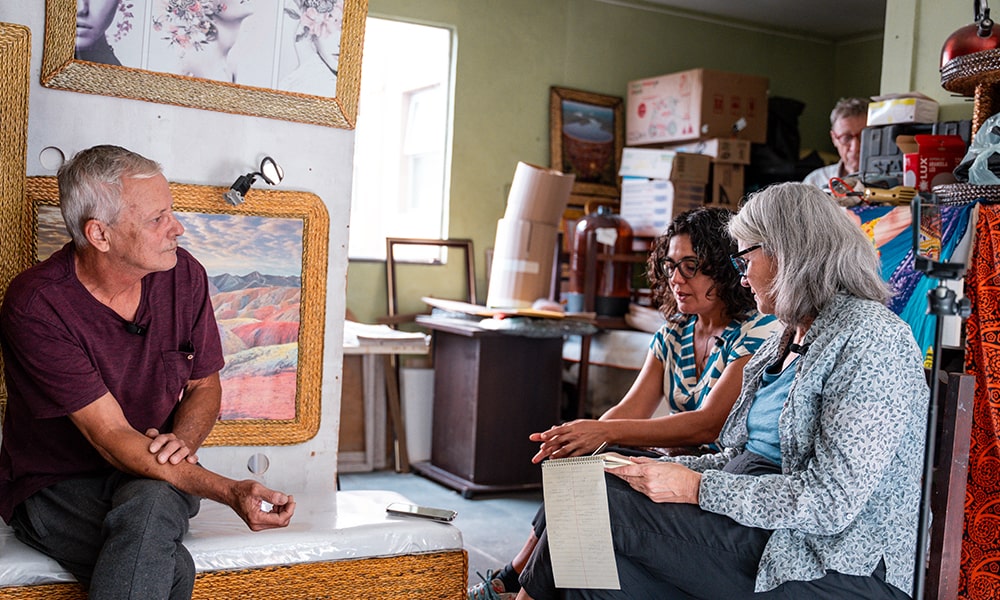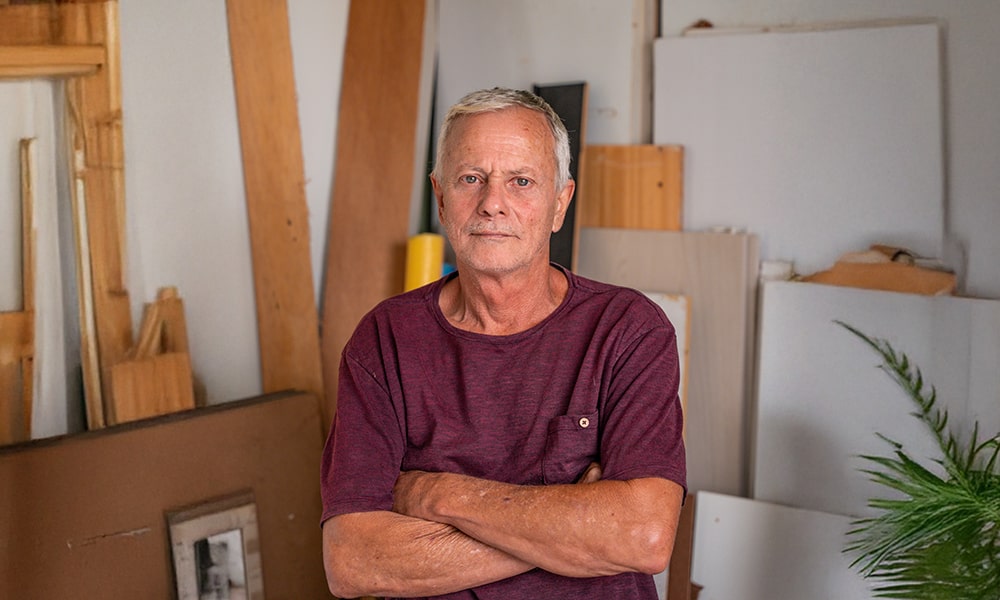Carlos Mariani doesn’t need the income for his work as an artisan, but he depends on it for survival. As a recovered alcoholic, 65-year-old Carlos needs meaningful work to occupy his hands and mind, and fill his days. So, when his wife goes to work, Carlos heads down two floors from his apartment near São Paulo to his atelier. There he uses rolled and braided newsprint to make objects such as trivets and picture frames and to decorate furniture including tables, bedframes and chests.
For the past two years, this eco-work has been his “safety net and salvation,” Carlos says, gesturing with his hands for emphasis. “It’s more than a way of earning some money… It’s a way to keep my mind busy and not go back to addiction.” He says he needs to be well for his own sake and for his wife Albertina, who does invoicing at a local hospital, and Isabella their 33-year-old daughter. He has been alcohol-free for 15 years.
His creative efforts are supported by the Association of Home-Based Workers from Osasco (ATEMDO), a local affiliate of HomeNet International. ATEMDO organizes trade fairs about nine times a year, where Carlos and others showcase and sell their artisanal works, and it provides networking opportunities, monthly meetings and other supports, such as workshops. Carlos plans to attend one on social media.
Chatty and affable, Carlos is also self-effacing and couldn’t imagine why anyone would want to know his story. Still, he opens up to recount his journey. Due to alcohol addition, he spent three-years in a rehabilitation clinic, but wasn’t interested in its workshops, including one on making things from paper. Later, he began weekly visits to a government-sponsored Psychosocial Support Centers (CAPS) as he tried to figure out what to do with his life. During his three years with CAPS, a nurse convinced him to attend a weekly workshop on making paper decorated objects and furnishing. Carlos found his niche.
“I like the whole process, beginning to end, and I like that something beautiful results in it,” he said, smiling shyly. “It was kind of genius”

The technique is time intensive. Carlos rolls strips of newspaper about 30-centimeters long and seven-centimeters wide, around a thin knitting needle, then pastes its end. After removing the paper tube or straw from the needle, he braids three together. Braids are joined into eight-metre lengths, then glued onto a solid surface and varnished. A picture frame can take two days and about 400 straws to complete.
Early on, CAPS invited Carlos to take part in a trade fair at an Osasco shopping mall. He has a pension from his long-time job maintaining typewriters and calculators at a bank, but it pleases him when someone appreciates and buys his creations. At the fair, he met Edileuza Guimarães, President of ATEMDO who encouraged him to join them. When the mall owners closed the trade fairs, ATEMDO negotiated with the city for trade fair space near the Osasco train station. ATEMDO also arranges night-time security.
“The ladies from ATEMDO work really hard and they help in many ways.”
In 2024, Carlos took part in all nine ATEMDO trade fairs. His fellow vendors have become friends, minding each others’ booths as needed, and giving support. For example, Carlos stopped selling table lamps, because he didn’t want to compete with another vendor who made lamps. Carlos also goes to monthly ATEMDO meetings to learn about its activities.
Carlos’ atelier is divided into two: half showroom, half workshop. He takes commissions, but even when he doesn’t have a specific project, he keeps making straws every evening, rolling as he watches TV. He is also inspired by other artisans’ works and has branched out from the straws. Some furnishings are covered with used coffee filters, creating a pleasing mottled effect; others are lined with used wine corks. Recently his daughter’s mother-in-law gave him some cardboard which she thought he could use to make decorative Christmas tree holders. He said he could make one or two, and she said, if it works, she’d order one hundred. He grins as his eyebrows rise.



